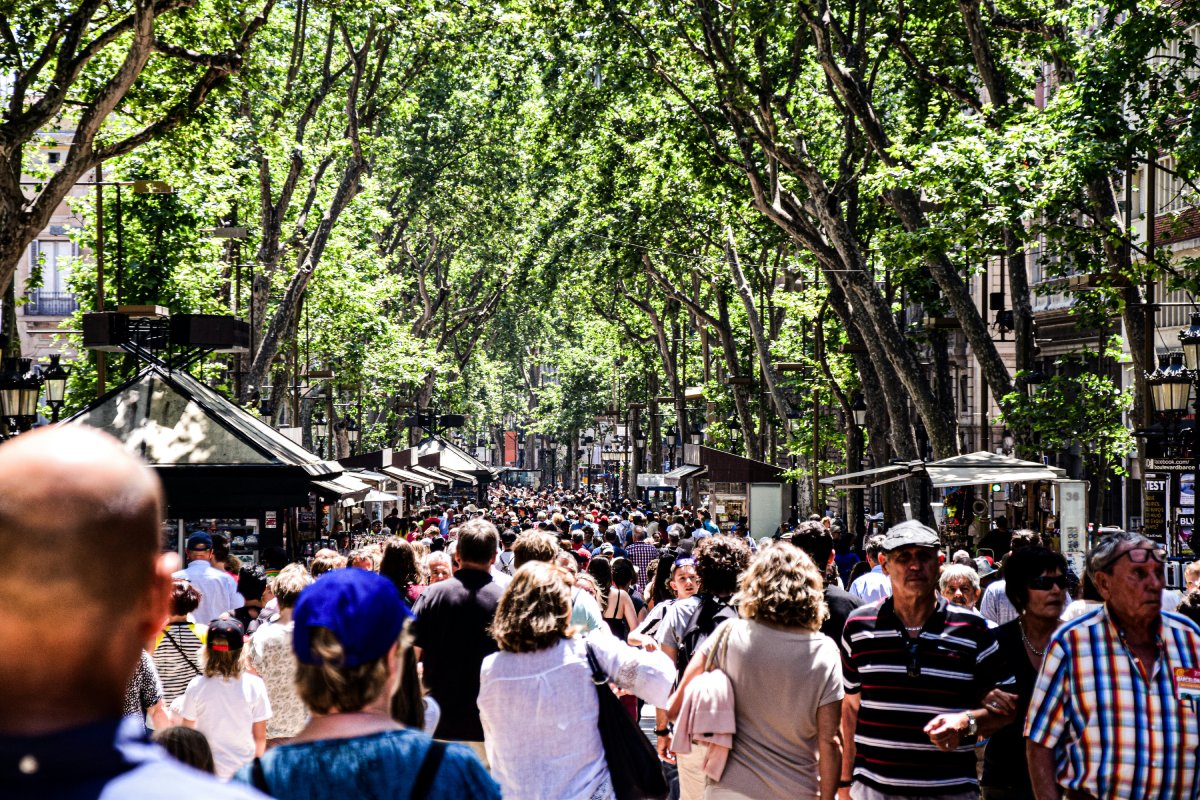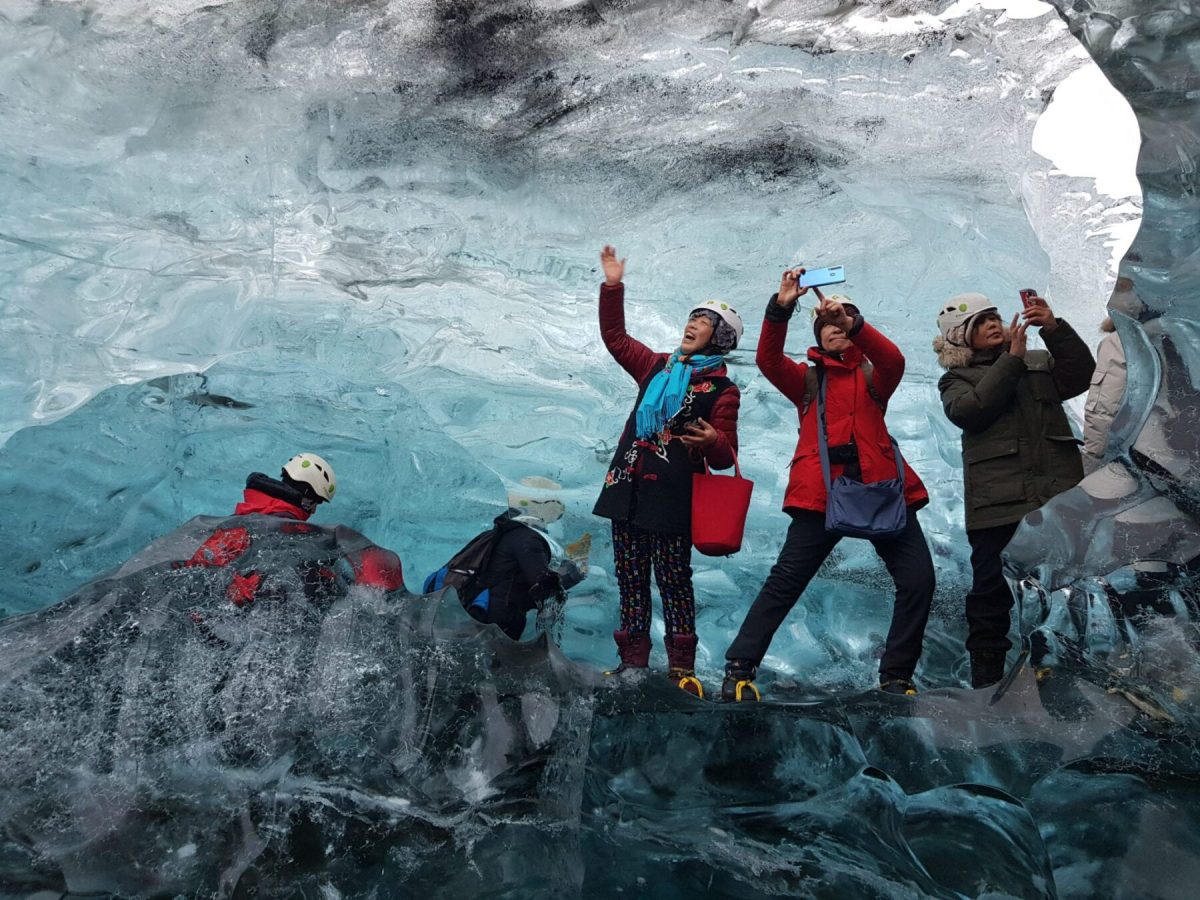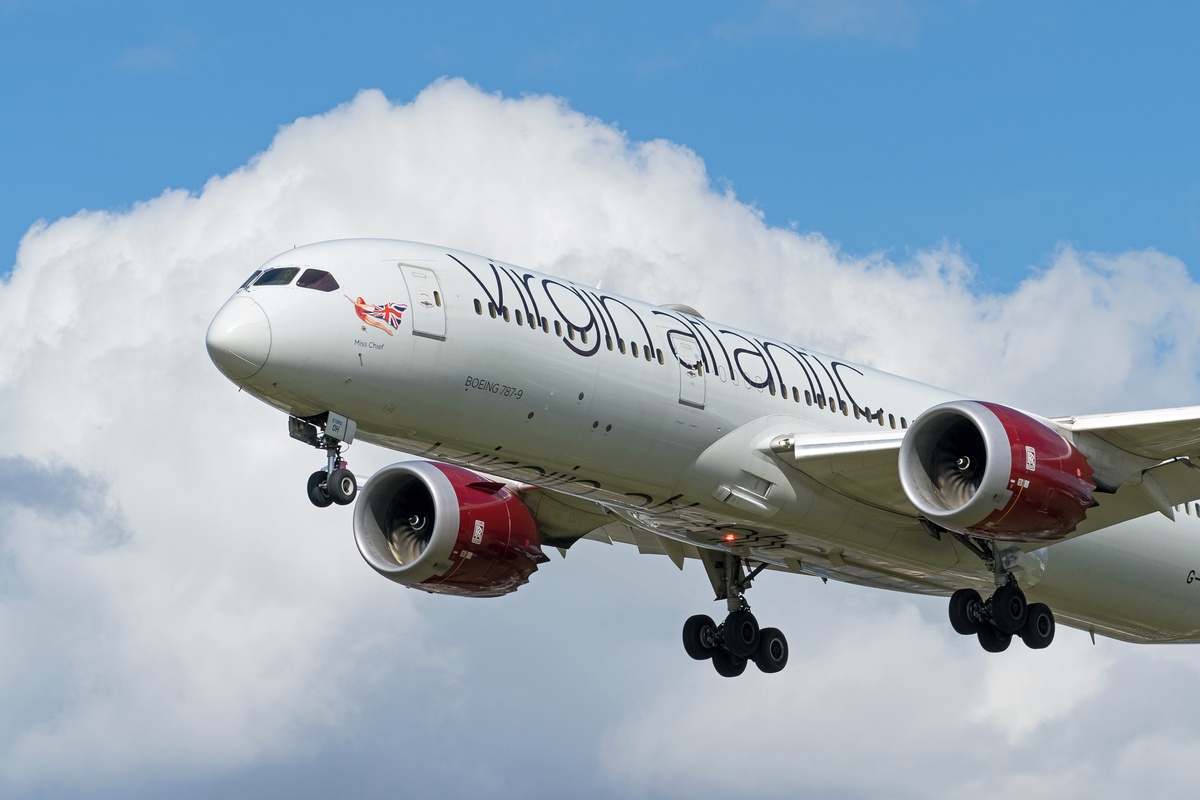America's Cup Sparks Protests Against Mass Tourism in Barcelona

Skift Take
Thousands of locals in Barcelona took to the streets on Sunday to demand that the city stop hosting the America’s Cup and other large tourism events.
Under the slogan “America’s Cup, never again,” the demonstration began at Plaça de Correus. Police blocked the protestors from accessing the event’s fan zone. The finals of the America’s Cup, an international sailing competition, began on October 12 and will conclude on October 20.
Some protesters chanted, “Your boats raise our rents,” “[Mayor] Collboni, give us back our money,” and “Barcelona is not for sale.” The demonstration featured protesters wearing masks of Barcelona Mayor Jaume Collboni and Bernard Arnault, CEO of LVMH, a sponsor of the sailing competition, as they danced to an anti-America’s Cup parody of the song “La Canción del Velero,” reported Catalan News.
At the end of the demonstration, protesters burned a replica of the America’s Cup trophy.
The protests were planned over a month ago by the group “No to the America’s Cup,” which is made up of over 140 organizations. The group alleges that the city council and America’s Cup organizers have misled the public about the number of visitors and the economic benefits of the event, while contributing to pollution, wasting taxpayer money, raising rents, and privatizing public spaces for luxury tourists.
“The deepening of the city model based on macro events and tourism makes the lives of the majority of the population even more precarious and lines the pockets of the wealthy few,” the group’s website stated.
Last week, the group also filed a complaint against the event with Catalonia’s anti-fraud office, requesting an investigation into “the people involved, the contracts, and the public contributions lost,” according to Barcelona-based news outlet La Directa.
Some in the local tourism industry have highlighted the event’s positive value, particularly the publicity it brought by showcasing the city on TV and online. Barcelona Convention Bureau Director Christoph Tessmar told Skift Meetings that the investment from national, provincial, and city governments was worthwhile because the event presented different aspects of the city to millions of viewers.
The protests against the America’s Cup are not the first to occur in Barcelona this year. In July, nearly 3,000 people took to the streets. More than 140 organizations, including neighborhood associations, ecologists, and housing activists, marched under the slogans “Enough, let’s put limits on tourism” and “Tourists go home.”
These protests made headlines after some protesters sprayed tourists sitting at restaurants with water guns.
Among their demands were a ban on short-term rentals, better working conditions in the tourism industry, a reduction in international flights, a halt to new licenses for hotel developers, the closure of cruise terminals, the end of tourism promotion, and even the dismantling of Turisme de Barcelona.
Local Unrest Grows Amid Spain’s Tourism Boom
Barcelona is not the only destination in Spain that has experienced large-scale social unrest. This year, significant demonstrations against mass tourism have occurred in Mallorca, the Canary Islands and Malaga.
Spain has experienced a tourism boom this year. The country received 10.9 million international tourists in August, a 7.3% increase compared to 2023. In the first eight months of 2024, international tourist arrivals reached 64.3 million, according to Spain’s National Statistics Institute.




